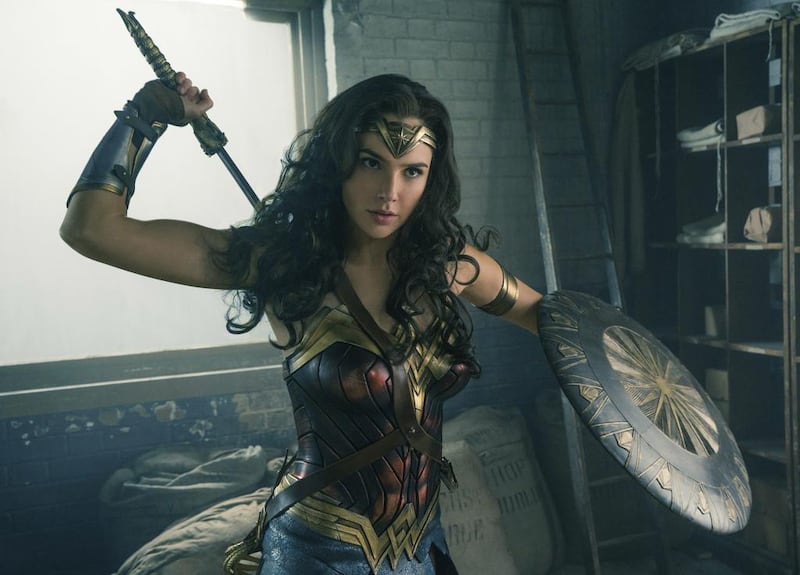When I came to Hollywood as a young man, there were a few ironclad rules about movies. The first was that movie sequels were never as profitable as the originals. The second: audiences are too sophisticated for superhero pictures. The third: young men drive box office profits, so make sure you never make an action movie with a female star. And the last: women, as a rule, make lousy film directors.
These weren’t my rules, you understand. They were just the guidelines followed with total obedience by arguably the most cowardly population on Earth, movie studio executives.
I’ve been working – and, often, not working – in Hollywood for more than 25 years and I’ve seen the gradual erosion on most of these articles of faith. Movie sequels, as we all know, are a hugely profitable part of the entertainment business. And when Warner Bros released the first instalment of the (now interminable) series of Batman films, in the early 1990s, its massive success destroyed the idea of audience’s resistance to movies about comic book superheroes. Since then, Hollywood seems intent on releasing only superhero pictures, and only sequels at that. If the terrified (but overpaid) teams that lead the major motion picture studios could somehow manage it, they’d never make another movie again that wasn’t a remake of a previously successful sequel of a superhero movie that had already been remade.
The last rule, though, has remained steadfastly unchallenged. There have been some pioneering female film directors over the years, but these have stayed mostly within the drama realm. Women, according to the people who make these decisions – and the decision-makers are not all men, in fact – are better suited to softer, more dialogue-heavy projects. Women, went the rule, have a hard time with more aggressive fare like bawdy comedies and high-powered action movies.
This resistance had less to do with sensibility than the sheer brute force required to film a big-budget superhero film. An action movie set is like a small war zone: there are explosions to manage, immense ego eruptions from the actors, enormously complicated technology and a constant drumbeat of interference and second-guessing from the team back at HQ. Action movie directors are often loud-shouting, strutting macho types – and it’s easy to see why this kind of style works, when success means the ability to marshal hundreds of staff through a complex and baffling process.
Action stars tend to be shallow dudes, too. To us it seems that they are powder puff princelings, paid extravagant sums to hop around in absurd costumes. But to them – and this is the reason so many movie stars seem utterly nuts – they embody the superpowers of their characters. When an actor plays Spider-Man – or a super spy, tough cop, Batman, that sort of thing – they come to believe they’re actually invincible crime-fighters with extraordinary gifts.
This makes their performances so effective and believable, but it makes their off-screen behaviour intolerably irritating. So it may require an equally brutish, equally macho director to keep the actor in line.
That, anyway, was the rule.
Last week, Warner Bros released Wonder Woman, a superhero action picture with a female star at the centre, and directed – brace yourselves – by a woman.
In the weeks leading up to its release into cinemas, you’d have thought Warner Bros was attempting something as outlandish and risky as a landing on Jupiter. Hollywood buzzed with doom-filled predictions about the success of Wonder Woman – a woman director, sure, but a female superhero? Insane! Or, the reverse: sure, Wonder Woman is a great character and younger male audiences are advanced enough to buy tickets, but a female director who has previously only directed dramas? Insane!
Warner Bros insiders spoke “off the record” to certain entertainment journalists, hedging and handicapping the chances of a total debacle. But what no one asked, of course, was the crucial question: is the movie any good? Is it exciting or is it boring? That, more than anything, determines the success or failure of a major motion picture. The precise gender distribution of cast, crew and director is less important to audiences than whether the movie is fun to watch.
As it turned out, Wonder Woman is fun to watch, and as a result, it’s a giant moneymaker at the box office, well on its way to a worldwide haul of $500 million (Dh1.8bn), knocking down audience records along the way, as well as the idiotic notion that women can’t direct action pictures and that audiences won’t accept a female superhero star. The director, Patty Jenkins, is the newest must-have director for an action picture. Studio executives all over Hollywood are now trying to figure out how to remake a sequel to a previously remade superhero movie, but this time with a female star, directed by a female director. Prepare yourself for Spider-Woman and Bat Lady and, probably, Jason Bourne’s sister Jane.
Hollywood has only two settings: total blind obedience to a few simple rules, or total blind obedience to this month’s sensation.
Rob Long is a writer and producer in Los Angeles
On Twitter: @rcbl





